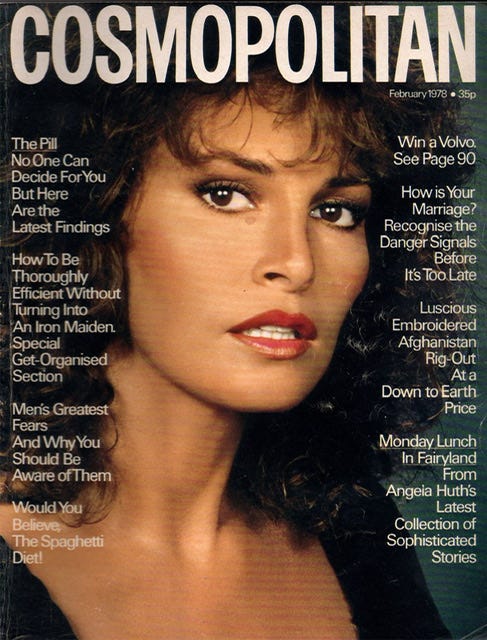Obituary: Raquel Welch
Raquel Welch’s ability to entertain comes through if you think about it
The scope of Raquel Welch’s ability to entertain comes through if you think about it.
The voluptuous sex symbol—an icon of fashion in the Seventies who died this week at 82—was painted by Salvador Dali, solicited for a nude centerfold by Hugh Hefner and greeted by the queen of England. Raquel Welch co-starred with Bob Hope, Harvey Keitel, Elvis Presley, Charlton Heston, Jodie Foster, Frank Sinatra, Burt Reynolds, Bill Cosby, James Stewart, Robin Williams and John Wayne as well as Reese Witherspoon, Cher and Mae West. By most accounts, what impresses colleagues is her warmth, tenacity and intelligence.
Throughout a career on stage, television and in movies, Raquel Welch conveyed poise with photogenic beauty. Breaking the color barrier with Jim Brown in 100 Rifles, playfully amusing audiences with her bosomy villain Constance in both hit Alexandre Dumas Three…
Keep reading with a 7-day free trial
Subscribe to Autonomia to keep reading this post and get 7 days of free access to the full post archives.




